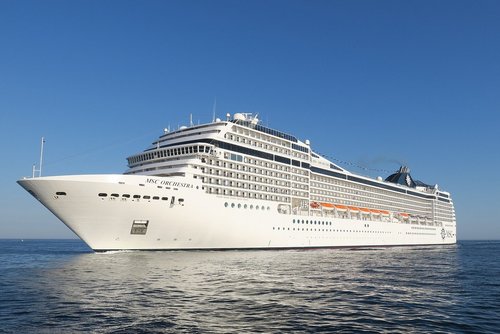As great as it would be to be spontaneous, these types of adventures require some planning.
Keeping your finances in check when you’re dreaming of white, sandy beaches or dramatic mountainscapes can feel like a chore, but it can enhance your experiences and make you appreciate your hard work and sacrifices down the line.
Below are some important things to think about before embarking on the adventure or adventures of a lifetime.
1. Consider Your Finances
Unfortunately, global travel is a costly expense. For most, being able to splurge on a luxury trip or long-term adventure is something that requires years of planning.
If you can, start to plan for your travels before you actually retire. Getting a good look at your finances before you retire allows you to be realistic with what you have saved and are projected to earn. This leads to you being able to make a budget for flights, accommodation, food and luxuries for your holiday.
Additionally, if you're considering moving into a retirement community, factoring in travel plans early on can help you align your budget with your long-term living expenses.
Savings are not the only financial option available to you, though. You could refinance your mortgage to a lifetime mortgage. This will free up some tax-free cash for you to enjoy. Alternatively, you could cash in some pension pots although this may incur fees or be less than predicted if you take out a lump sum.
2. Is Anything Stopping You?
Do you have any obligations or requirements that might keep you at home? For example pets, caring for family members, or grandchildren? This also applies to you if you have any health issues. Travelling in retirement can be wonderful, but if you are physically experiencing issues then this can be worrisome.
Think about your future. You might be able to travel for a bit, but if your condition gets worse and you need to move into the village at south farms or a similar place, then take a look at where you can go, how much it will cost, and the time limit. From there you will be able to decide the best course of action.
3. Budget Your Trip
Travel also doesn't have to cost a fortune and there are lots of ways to travel for a low cost, or even free!
You could visit places near where you live, or check out budget tips online. Even some popular activities like cruising can be affordable if you book early, or last minute.
You could also consider cheaper destinations, for example you could travel for months in Asia or Latin America for the price of a few weeks in Europe, Australia and North America for example.
Cheap travel destinations include south east Asia, Guatemala, Mexico, Bolivia, Peru, eastern Europe and Africa. Places to avoid if you don't have huge funds include countries like Australia, Singapore, Taiwan, Japan and cities like London, Paris, New York and Sydney.
4. Health and insurance
Travelling to far-flung places can be unpredictable. Some nations and destinations have their unique dangers and circumstances, thus it’s important to consider them carefully.
Facing issues such as health emergencies, travel disruption and unforeseen events can be stressful which is why having comprehensive travel insurance is a must-have.
Although this is often seen as an added expense, it really is important and can save you a lot of money if you have any issues when overseas.
As well as buying insurance, it is essential that you have any recommended travel vaccinations. This does vary between countries so make sure to check well in advance of travelling.
You should also research the healthcare system in your destination country, just so that there are no surprises in the event you need it. Look up local words for ‘pharmacy’ and ‘hospital’ to be sure you can find what you need.
5. Accommodation
Hotels seem like the obvious choice when it comes to finding a place to sleep. They are luxurious places with all the amenities taken care of, but that does come with a large price tag.
If you are looking for economic options, try finding private rentals such as Air BNBs which offer extended-stay options. This can save you a great deal of money whilst giving you your home comforts.
To cut down even more, you could sign up for more innovative strategies such as house sitting or house exchanges. You may even be able to get paid as a live-in pet sitter whilst the owner is on holiday. This allows you to explore the area with an animal companion.
If you are swapping with another household, the price of accommodation may even be free save for the bills that your own home uses. Just remember to use official services to keep yourself as safe as possible.
6. Find Things to Do
Whether you want to cruise the Caribbean islands, overland North America, see ancient temples in Central America or go island hopping in Thailand - the world is your oyster.
You could travel and arrange everything independently, book with a travel agent, or consider group tours.
An alternative option you might not have considered is volunteering abroad. There are lots of worthwhile causes all over the world seeking help all year round. This is a great way to do something beneficial, meet new people and experience living abroad in new countries and cultures.
7. Language
If you plan to travel to places where English isn't the first language you might want to learn some of the basics befoe departing.
You can't learn a new language overnight, but you can pick up a few common words and phrases that are essential to survive travelling in a new country.
If you really want to advance your level, it’s best to enrol in a course at a local language school, preferably before arriving in your destination.
You will also find in popular tourist destinations some people will be able to speak English but even still it will pay to learn the basics of the native language of your new chosen country especially to be polite and impress local people.
8. Research
Even if you haven't yet retited there is no time like the present to start planning trips, or researching your dream destinations.
Watch tv shows, read online travel guides, blog articles or get on YouTube where you can browse thousands of inspirational and helpful videos from global travel bloggers.
You will also need to work out if you are going solo, a partner, friends, or even you could ask your children or granchildren if you have any.
9. Don't Want to Go Home?
If you do travel and don't actually want to settle back into a normal life at home why not consider retiring abroad.
Typically when people think of retiring overseas they think of Spain, France, Australia and Mexico - just to name a few destination. The appeal is the sunny skies, laid back lifestyle and the opportunity to try new things.
Winter daytime temperatures in Southern Spain are usually above 10° and very rarely below it, with the country as a whole enjoying an estimated 300 days sunny days a year.
Other advantages for retirees include experiencing an exciting new way of life, the local food and the huge range of different activities on offer.
10. No Regrets
If you don't have anything stopping you and you have the time, money and desire, go explore the world. You really won't regret the decision, after all life is short and times goes quick, so plan your adventures as soon as possible.








